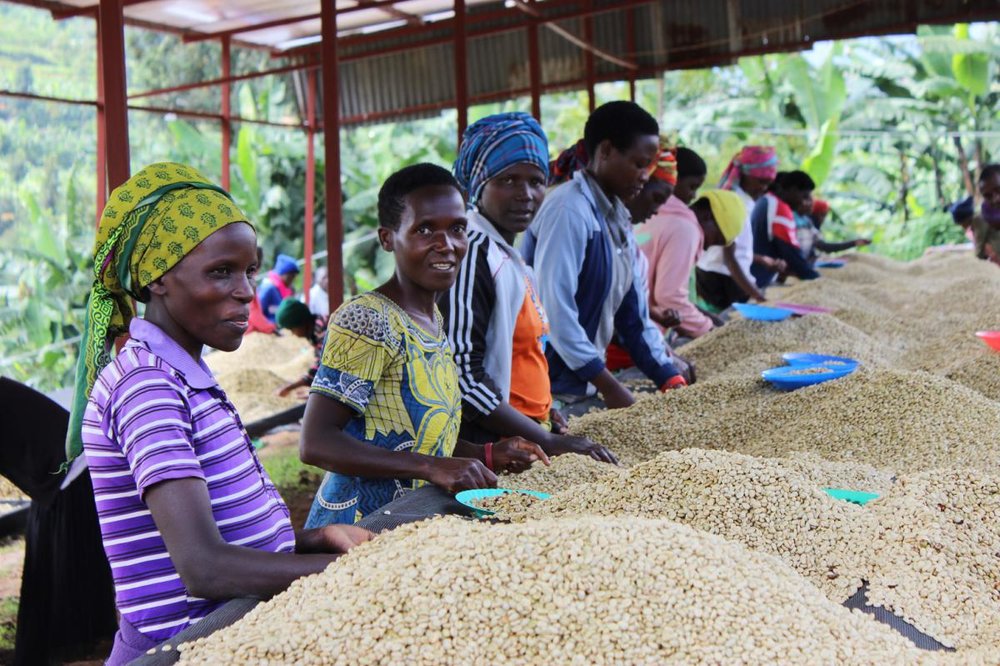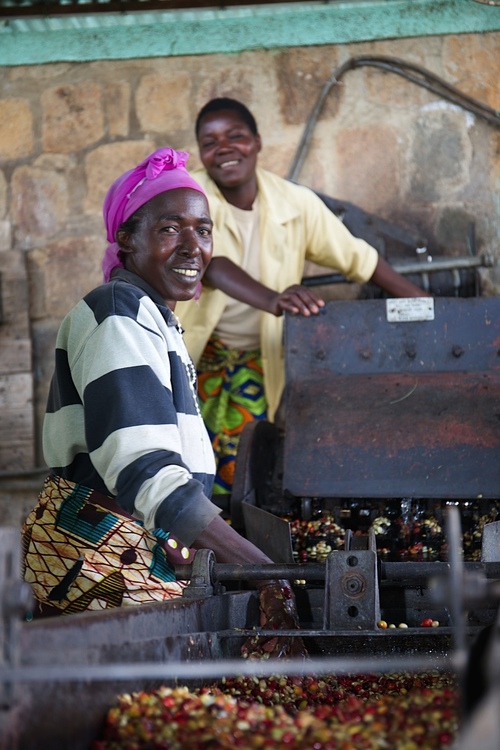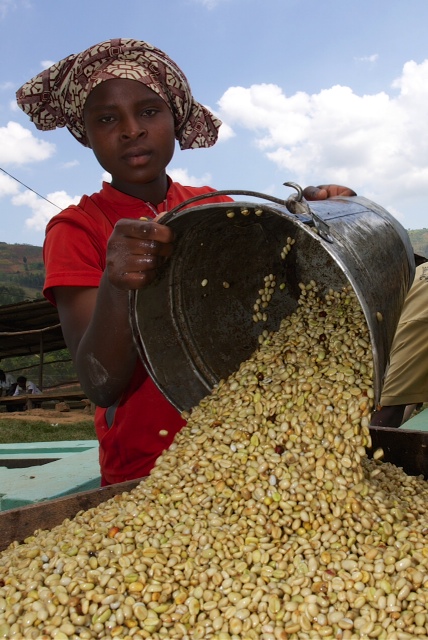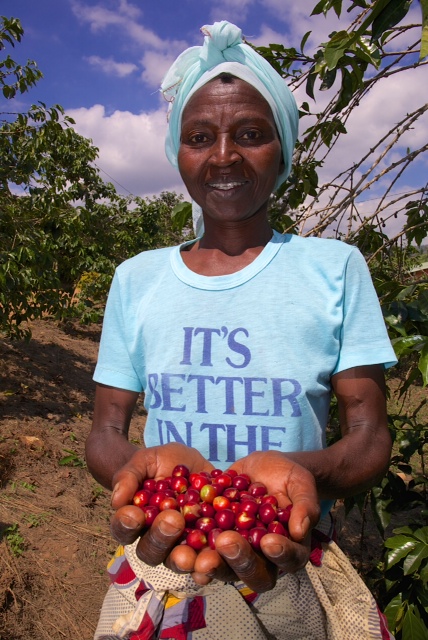The Abakundakawa (“Those Who Love Coffee”) Rushashi Coffee Cooperative, located in the northern mountainous region of the district of Gakenke, is situated at an altitude of 1700-1900 meters and encompasses five distinct zones. The coffee cooperative was formed in 2004 and due to a strong women’s movement became the first Women’s Farmer Association of its kind in Rwanda.
Abakundakawa coffee cooperative is represented by two, all women associations, Hingakawa (“Let’s Grow Coffee”) and Dukundakawa. (“We love Coffee”).
The women of Hingakawa have seen one of the darkest periods of Rwandan history. Since this group includes both Hutu and Tutsi, the women made a decision to make poverty their mutual enemy rather than each other; and with this sentiment, they have been able to move forward and heal their community through their leadership.

After the coffee farms in Rwanda were left fallow for a time, several organizations assisted the farmers to be able to produce coffee once again. Hingakawa, as the name suggests (“Let’s Grow Coffee”), is more of a chant than it is a mere statement.
It is a resolution to fight an epidemic that has crippled and claimed lives of numerous households: Poverty. These women have had enough and have come together to yell out loud “LET’S GROW COFFEE” together and reclaim our lives.
Like every corner of this world, the African continent continues to jump leaps and bounds to shun itself from a continent that is historically known for the “rule of man”. Commonly and recently still referent to as the last frontier where women still have no rights; where dignity is a hard earned thought. When a country like Rwanda goes through a devastating genocide, it was not uncommon to hear skeptics, analysts and so-called experts refer to it as “stateless…hopeless; a country just as dotted on the map in size, is just as easy to erase off the map” – and on and on. Infuriating as it must have been to hear time and time again it added an overwhelming feeling of forlornness.
However, as relevant as it is, this is not a story of how they got there; it’s a story of who was daring enough to plant seeds of hope at the bedrock soils of underlying skulls; “The Women Coffee Farmers of Rwanda” If you had a cup of coffee today, chances are that it was planted, tendered, picked, delivered, harvested, processed, sun-dried, sorted, hulled, analyzed, bagged, transported, counted, roasted, re-bagged, ground, steeped, handcrafted, and served to you by a woman. Coffee, just like humans, has a high natural deliquescent microcosm, where the line between character and contamination is extremely fickle. After the genocide, Rwanda stood at the crossroads of the latter microcosm.



Society was broken; its only chance of survival was to have a change of heart as a society – a complete overhaul. Equality and reconciliation was not just an option, but an absolute necessity.
Coffee farmers were one of the first pillars of society that wholly embraced the trickle down messages of equality and the banishment of archaic patriarchal from the leadership of women – a cultural risk that is often not given its due credit of exemplary courage where equality is otherwise seen as taboo. A courage that is partially and significantly responsible in stitching the hearts and minds of a once torn society; a courage desperately needed in re-stitching an industry tearing at the seams of sustainability, transparency and quality. The role of women in coffee can no longer be undermined, unnoticed, or gone un-incentivized. The trick is getting to know “who” they are.
We are proud to introduce you to the brave women of Hingakawa Women’s Coffee. The journey of both the producers and product are fully traceable by a third party traceability verifier. The details to chain of custody tracking allow us to recognize these incredible women and understand what makes this coffee as special as it tastes.


